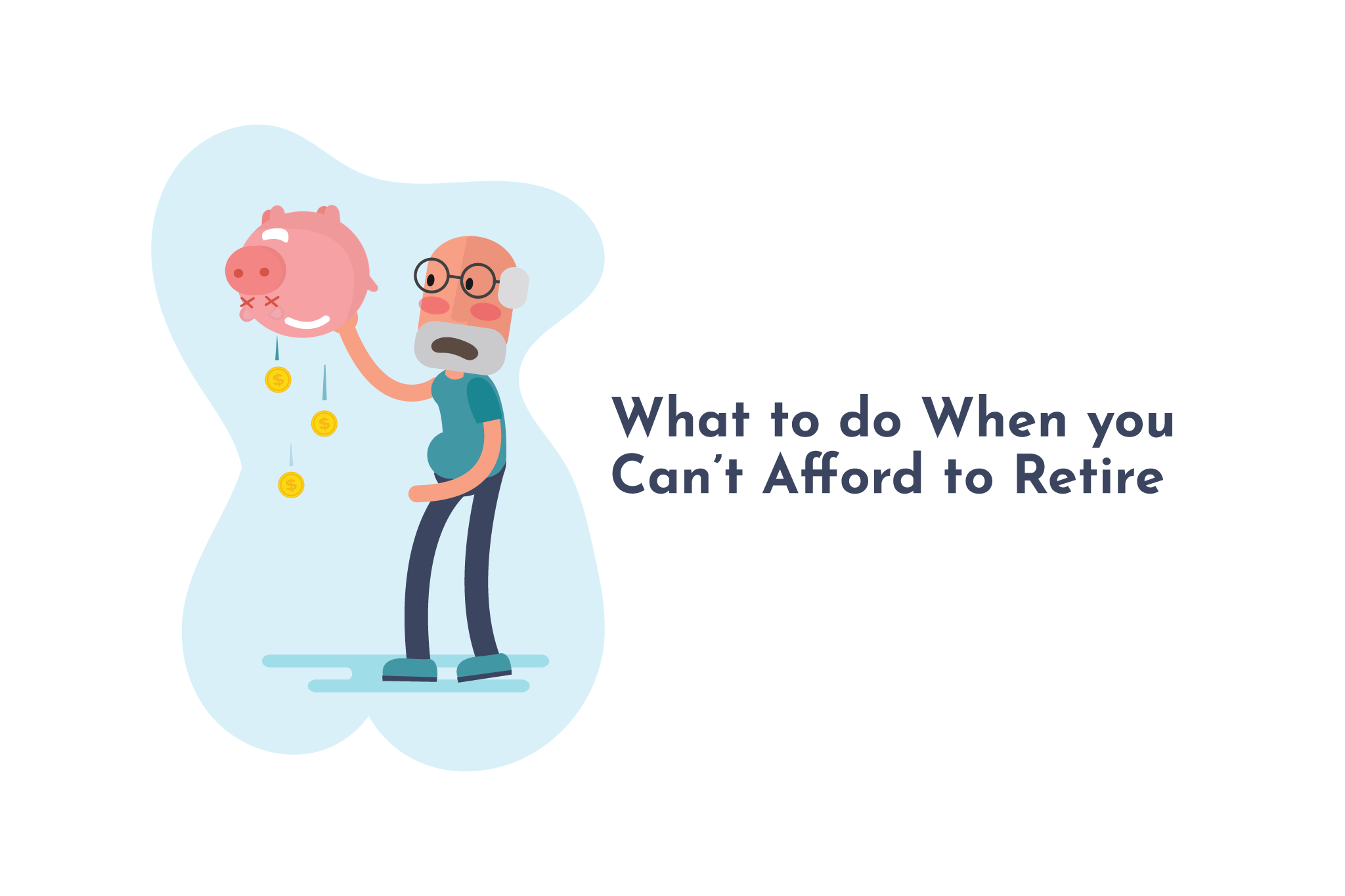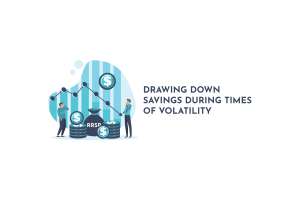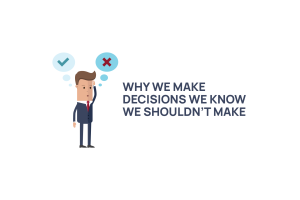If the world were perfect, everyone would reach retirement age and sail off happily into the sunset with enough money available to support the lifestyle that they want to have and enjoy their golden years. This was often the case for previous generations as many jobs came with pension plans, and it was common to get to retirement age without any significant debts that you needed to pay. The world has changed, though. Workplace retirement plans are less common, and the defined benefit pension plan (along with its guaranteed income for your lifetime) has almost completely disappeared from the private sector. Housing costs have increased to the point where people still have mortgage payments to make, entering retirement more often than prior generations did. Add to this that it is estimated that 40-50% of first marriages end in divorce in Canada, and you see that there is a real possibility that when you reach age 65, you may not be able to afford to retire in the way that you had hoped. Let’s take a few minutes and review the idea of retirement and what options are out there to help you.
In This Article:
- Why do we Dream of Retiring at age 65?
- What About Today?
- Government Retirement Plans
- What are Some Options if you Reach 65 and Can’t Afford to Retire?
- Conclusion

Why do we Dream of Retiring at age 65?
Have you ever asked yourself why people aim for their retirement at age 65? It seems a bit arbitrary. How did that age get picked in the first place? If you look way back in history, one of the first evolutions of the retirement age came in 1889 from German Chancellor Otto von Bismark, who decided that the German government would pay people aged 70 and older to leave their jobs to create job openings that would address high levels of youth unemployment. They revised this age to 65 after initiating the plan, and many people believe that this is the precedent-setting event that created retirement at age 65. Here’s the kicker, though. When they made this adjustment, the average lifespan for people was age 42.5. They established that they would pay anyone over 65 to leave their job so a younger person could take over when that 65-year-old had outlived normal life expectancy by over 20 years. Doesn’t sound like they expected to pay out that much in their ‘retirement’ benefit. In 1966, Canada amended the Old Age Security Act to lower the retirement age from 69 to 65. In 1966, the average life expectancy in Canada was just under age 72. Again, what you see is that when governments made decisions on their government-funded retirement plans, they didn’t plan on having to pay for prolonged periods of time. They tended to adopt eligibility ages where they were close to (or exceeded by) life expectancy, hoping to minimize the cost of the plans.
What About Today?
Life expectancy in Canada in 2023 is almost age 83. When planning for your retirement, it’s helpful to think of things with this in mind. Many people don’t enter their peak earning years in Canada until they are in their 40s. Let’s say you want to retire at 65, and you reach peak earning years at age 40. This means that an average Canadian has 25 years to save enough money to support a retirement that will, on average, last 18 years (until age 83). The kicker is, though, that life expectancy number is a moving target. With improved medical technology, we see the life expectancy increase yearly, so when you retire at 65, you may plan on only 18 years of income, but you may need 23 years (as an example) because life expectancy increases while you age. Looking at the peak earning years, you have 25 years in that window to really save for the future. Do you know what else you must do during those years? Pay your mortgage, save for your kid’s post-secondary education, buy clothes, food, cars, gas, etc.…… After your immediate needs are looked after, the pot from which retirement savings are drawn is much smaller than most people want it to be. In fact, a survey published on benefitscanada.com found that 32 percent of those asked had never saved any money for retirement. This survey was completed in 2022. It also found that 75% of people aged 55-64 have less than $100,000 saved for retirement. In that same age grouping, 44% of people have less than $5000 saved. If you are in that age group and have less savings than you would like, there are some things you need to know about that can help you through retirement.
Government Retirement Plans
The Canadian government has a few different plans available to help Canadians with their retirement income. These plans include:
- Canada Pension Plan (CPP) – This is the plan that you have contributed to with deductions from your earnings over the years (matched by employer contributions). The idea of CPP is that they were trying to replace 25% of your pre-retirement income. The fact is, though, it is subject to annual limits that make it much less than that if you earned a high income while you were working. In the year 2022, the annual maximum income for CPP was $1254 per month. This means that if you earn more than $60,192 annually, you won’t be replacing 25% of your income. Additionally, in most cases, people don’t qualify for 100% of the CPP available. Again, in 2022, the average actual payout was $728 a month, just under 60% of the full amount.
- Old Age Security (OAS) – This is a plan for people aged 65 and over that isn’t based on having contributed to it. Instead, there are rules about where you live and how long you’ve lived in Canada (for example, ex-pats don’t receive OAS). If you lived in Canada your whole life in 2022, the OAS monthly benefit was $667. OAS is subject to something called an income test where if your taxable income exceeds a threshold amount, they claw back a portion of it, but for the purposes of this article, we won’t focus here (the threshold amount is $81,761 of taxable income in 2022).
- Guaranteed Income Supplement (GIS) – If you have no income sources other than OAS, you are likely going to receive the GIS, which will provide you with up to $996 a month. This benefit is also income-tested, but the threshold for clawback is much lower than OAS, so any taxable income that you receive outside of OAS is likely to result in a reduction of this benefit.
The average Canadian without any retirement savings can expect to receive between $ 1,500 and $ 2,000 a month in income from the three available government sources. If you have any taxable income, this number will be reduced because of the GIS clawback.

What are Some Options if you Reach 65 and Can’t Afford to Retire?
If you have reached age 65 and can’t afford to retire on the amount of income you would receive from the government plans, you have a few options.
- First and foremost, you can consider continuing to work. This doesn’t necessarily mean that you continue working where you had been leading up to age 65, but you may need to face the idea that you need to continue receiving employment income to support yourself beyond the age that you had hoped to retire at. Talking to someone who can help you calculate how this will affect your OAS and GIS payment amounts is a good idea here. You want to make sure that your employment income exceeds any amount of government support that you are losing from having that income to begin with.
- Consider alternative income sources. The biggest asset you can have here is owning a home. If you do, you may want to look at options for accessing any equity that has built up in your house. This can be done in a variety of ways and doesn’t require you to sell your home if you wish to continue living there. You can look at home equity lines of credit or reverse mortgages as ways to access the equity in your home and use that to supplement your income.
- You may need to change what your retirement looks like. Without enough savings, it may be necessary to adjust what you want to do if you still feel like you need to stop working. If your dream was to spend winters in the sunny south, you may have to let that go and keep your winter coats out of storage.
- Talk to a financial advisor. If you are going to still work and you have the ability to save money, does it make sense to use an RRSP? What about a TFSA? How does this affect your income in the future? Talking to a financial advisor can get you the forecast that you need to figure out the best plan for you.
Conclusion: What to do When you Can’t Afford to Retire
This is a difficult topic to come to terms with if it’s the boat you’re in. No one likes the idea of being unable to retire because they don’t have enough money saved. There are often feelings of shame associated with it because you feel like you should have done a better job-saving in the past for today. The thing to remember is that those feelings aren’t helpful; instead, do things like talking with your children, financial advisors, mortgage brokers and accountants. These people will help you come up with a plan that can work for you today and into the future. Your golden years may end up looking different than you had dreamed of when you were young, but that doesn’t mean that you won’t enjoy them. If you are coming up on retirement and not sure if you have enough money to retire, we are here to help.





